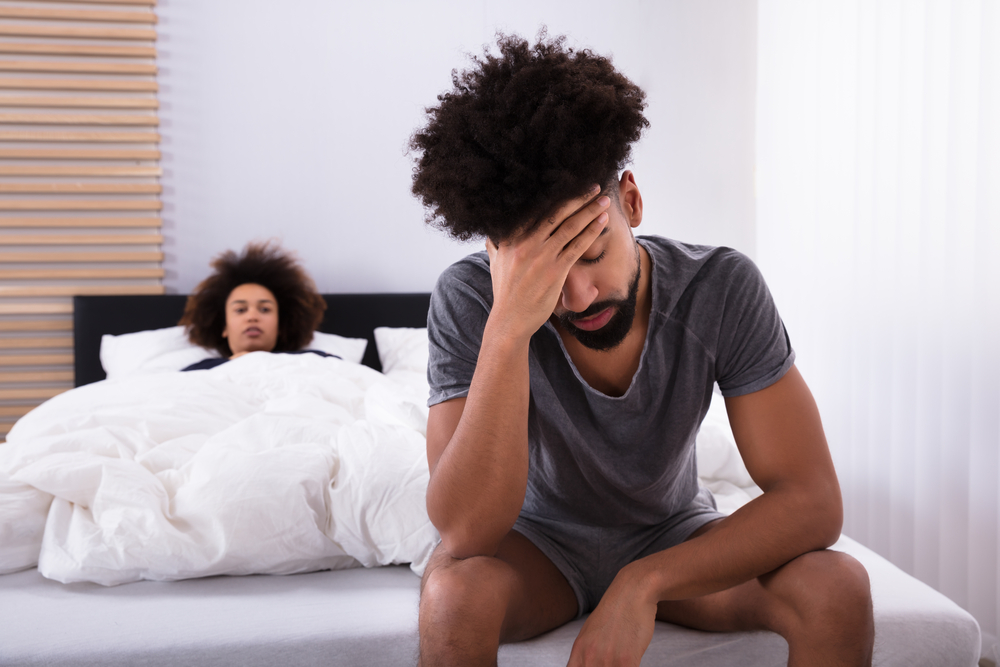
Do Mental Health Problems Have an Effect on Sexual Function?

In short, yes. When individuals are experiencing sexual difficulties or sexual dysfunction, they often assume the cause is physical. Certainly, many physical conditions can contribute to sexual dysfunction including diabetes, heart disease, vascular issues, pelvic floor disorders, hormonal imbalances, neurological issues, and other chronic conditions. However, the role that mental health plays in a person’s sexual function should not be underestimated.
Research has consistently shown associations between sexual dysfunction and mental health conditions such as depression and anxiety. Despite the proven association, it is difficult to determine whether mental health issues cause sexual dysfunction, sexual dysfunction causes mental health issues, or there is a bidirectional relationship between the two. That said, the following are some of the ways in which sexual health and mental health may interact.
Depression and Sexual Health
Depression is a condition that can lead to a loss of interest in activities that a person formerly enjoyed, including sex. People who are struggling with depression often experience fatigue, apathy, low self-esteem, decreased energy, decreased sexual desire, and an inability to feel pleasure. They may pull away from the people they love, including romantic partners. All of these symptoms can have a big impact on a person’s sexuality and may contribute to sexual dysfunction. In one study of 132 participants, 72% of the patients with unipolar depression reported a loss of sexual interest, along with 77% of the patients with bipolar depression (Casper et al., 1985).
Antidepressants, particularly selective serotonin reuptake inhibitors (SSRIs), can also impact sexual function. SSRIs have been associated with decreased libido and arousal, erectile dysfunction, delayed ejaculation, and orgasm difficulties (Balon, 2006).
Anxiety and Sexual Health
Like depression, anxiety disorders have been linked to decreased sexual desire and arousal. Because anxiety can distract a person from sexual stimuli, it can interfere with the sexual response cycle and become a detriment to sexual desire and arousal. On the other hand, some individuals with anxiety experience an increase in sexual desire that, in more severe cases, can lead to compulsive sexual behaviors.
Recent studies have also shown strong associations between anxiety and sexual dysfunctions like orgasmic disorders and sexual pain. Anxiety symptoms such as worry, obsessive thoughts, panic, and fear of falling short of another’s expectations have been linked to premature ejaculation (PE) in men and difficulty reaching orgasm in women.
Lastly, anxiety may contribute to vaginismus in women, a condition that causes the vaginal muscles to spasm involuntarily in response to attempted penetration, making said penetration painful or impossible. Previous experiences with painful or unsatisfactory sex may trigger anxiety for future experiences, creating a vicious cycle of anxiety and sexual dysfunction.
Other Mental Health Issues and Sexual Health
Not all mental health issues come with official diagnoses, but that does not mean that they do not impact sexual health. Individuals who are struggling with feelings of guilt, stress, low self-confidence, insecurity in their relationship, and/or concerns about their sexual performance may notice that these situations affect their sexual health. It can be difficult to be fully present during a sexual encounter when one is dealing with negative thoughts and emotions, which in turn may impair sexual arousal and response.
Support and Treatment for Mental Health Issues
Fortunately, there are treatment options for mental health issues, just like physical conditions. Patients should feel empowered to seek professional support for their mental health because it is just as important as their physical health.
Psychologists, psychiatrists, counselors, and sex therapists are all trained experts who can provide advice on how to manage mental health conditions and mitigate the negative effects they may have on sexual health. Courses on cognitive-behavioral techniques, mindfulness, and meditation are now offered both online and in person. Many individuals find yoga and deep breathing practices to be beneficial for their mental health. Regardless of the type of support or treatment you choose, it is important to address mental health issues not only for your sexual health, but also for your overall well-being.
Resources:
- Balon, R. (2006). SSRI-associated sexual dysfunction. American Journal of Psychiatry, 163(9), 1504-1509. https://ajp.psychiatryonline.org/doi/full/10.1176/ajp.2006.163.9.1504
- Basson, R., & Gilks, T. (2018). Women’s sexual dysfunction associated with psychiatric disorders and their treatment. Women's Health, 14, 1745506518762664. DOI: https://doi.org/10.1177/1745506518762664
- Casper, R.C., Redmond, D.E., Katz, M.M., Schaffer, C.B., Davis, J.M., & Koslow, S.H. (1985). Somatic symptoms in primary affective disorder: presence and relationship to the classification of depression. Archives of general psychiatry, 42(11), 1098-1104. DOI: 10.1001/archpsyc.1985.01790340082012
- Cleveland Clinic. (2020, October 27). Sexual Dysfunction. https://my.clevelandclinic.org/health/diseases/9121-sexual-dysfunction
- Corretti, G., & Baldi, I. (2007). The relationship between anxiety disorders and sexual dysfunction. Psychiatric Times, 24(9), 16-21.
- Unlubilgin, E., Tetik, S., Aksoy, I., Yuksel, D., & Tekin, O.M. (2021). Relationship Between Adult Separation Anxiety and Attachment Styles and Vaginismus. The Journal of Sexual Medicine, 18(10), 1752-1758. DOI: https://doi.org/10.1016/j.jsxm.2021.07.005






